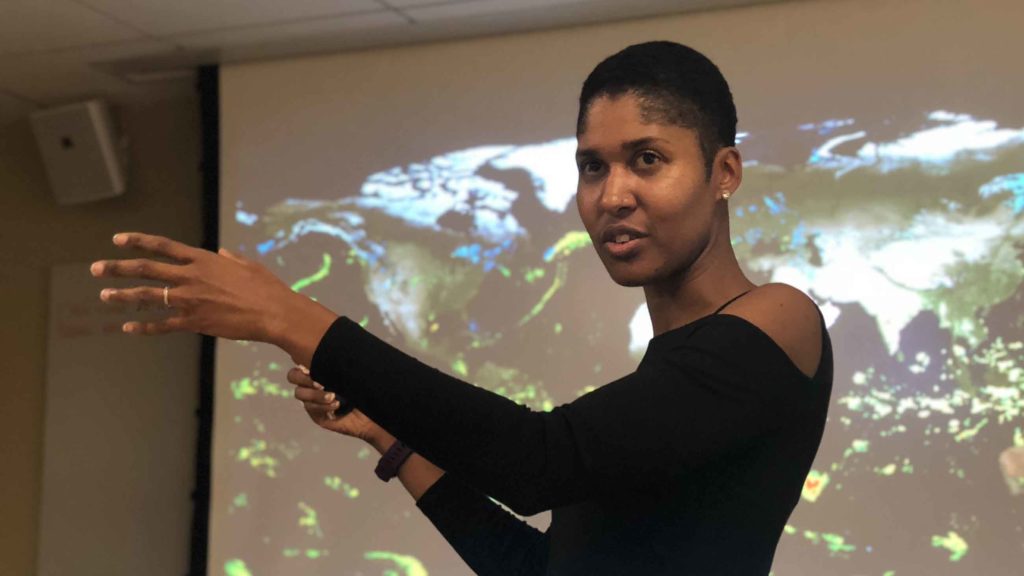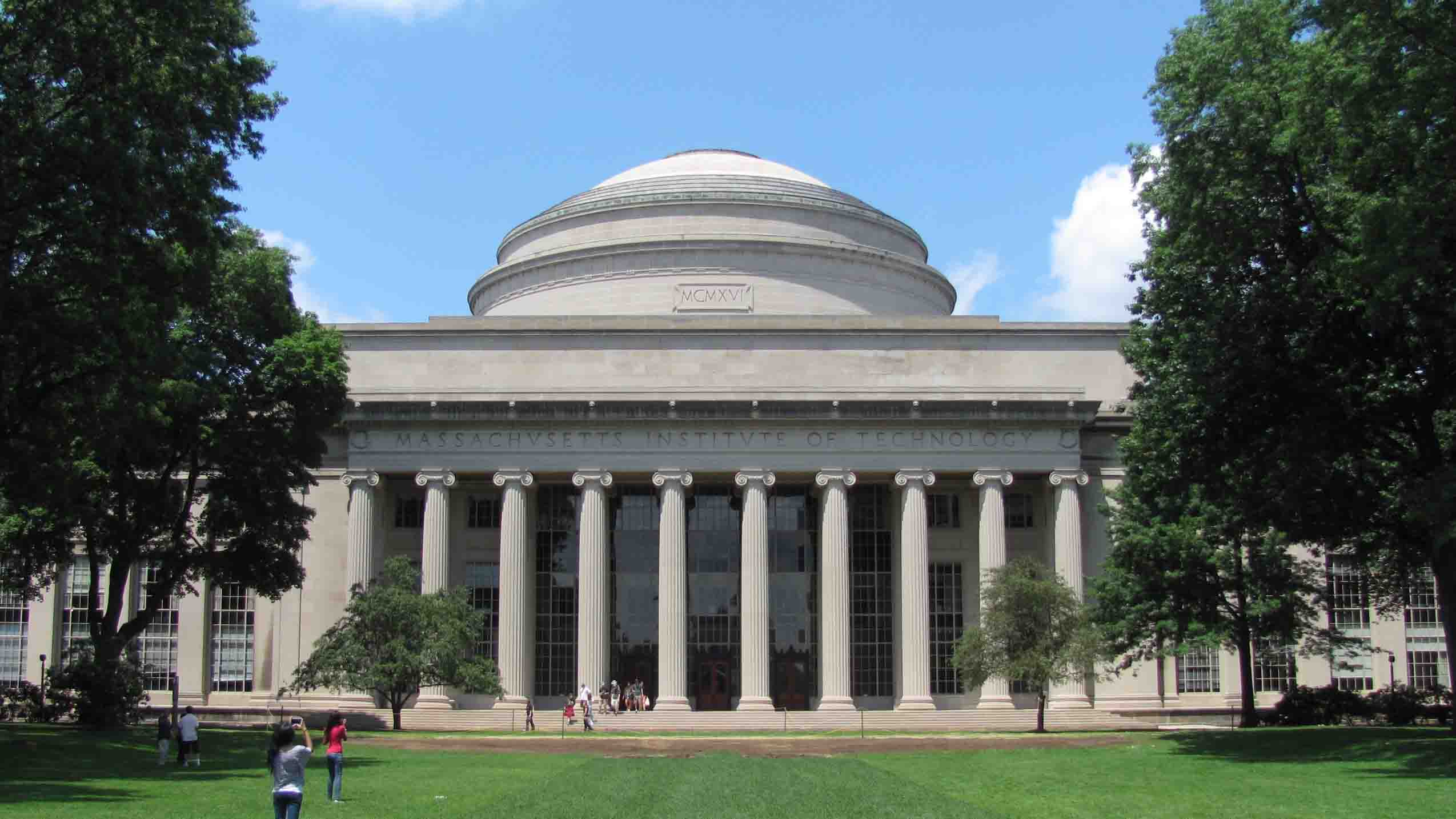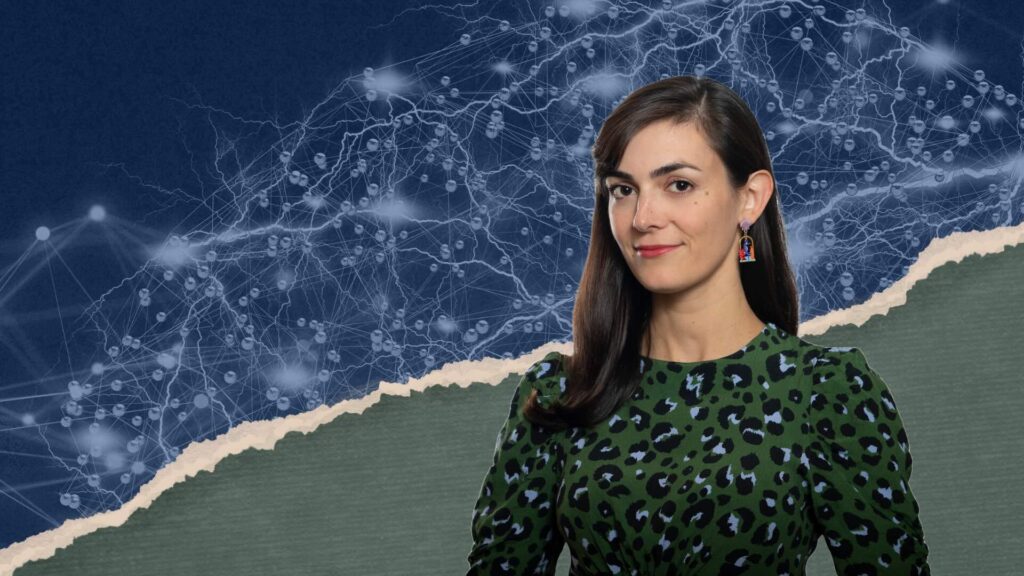Wood’s group at the Media Lab aims to break down barriers that have kept the developing world from engaging with space research.
MIT professor Danielle Wood knew she wanted to be an aerospace engineer when she interned at NASA at age 17. But she also spent summer breaks in Kenya teaching young girls English, math, and science, which engaged her long-term interest in justice and development. That made her want to find balance in her career between contributing to space missions and making a difference in the lives of people in developing countries. Speaking recently to an audience of KSJ fellows and guests, she described how she found that balance — and how she and her colleagues are helping to realize a more inclusive vision of space research.
Wood set the atmosphere for her seminar by reading two poems by 19th century black poets: “Myself” by George Moses Horton and “Bury Me in a Free Land” by Francis Ellen Watkins Harper. Horton was born into slavery, while Harper was born to free black parents. Together the two poems expressed a yearning to explore the world — and for the freedom to do so.
The free land that Harper envisioned does not exist even today, said Wood, due to issues such as human trafficking and mass incarceration. In the world of science, freedom is often infringed upon in more subtle ways: Preexisting social hierarchies, racism, and a lack of access to resources can act as barriers to making research inclusive.
Space Enabled, Wood’s research group at the MIT Media Lab, aims to break down those barriers using diverse methods like art and design, social science, computer science, systems modeling and satellite engineering. The group focuses on six technologies from the space sector that can have societal benefit, including satellites for remote sensing, communication and positioning, human space flight and microgravity research, fundamental astronomical research, and the transfer of space technology to users around the world.
Wood discourages people from using the word “colonization” to describe space exploration because of the historical inequities that resulted from colonial expansion. Instead, she encourages a more collaborative approach to space. Space Enabled regularly partners with local groups in developing countries. For example, they recently worked with Green Keeper Africa in Benin, which is turning invasive water hyacinth plants into dried fibers that can be used for handicrafts, as manure, or to absorb oil waste. With assistance from Space Enabled, the Benin-based group will be able to use satellite data to better locate water hyacinth patches throughout the lake to see which areas to focus on.
Even research that seems further removed from the ground, such as that conducted on the International Space Station, can have valuable applications in the developing world, explained Wood. “What astronauts do is useful to people on the ground as well,” she said, noting that space station experiments growing lettuce, tomatoes, and other plants have provided insight into how food can be cultivated in harsh conditions. She added that efforts to increase the nutrition in astronauts’ food has applications for fighting world hunger.
When the International Space Station — where astronauts have worked for 20 years — eventually wears out and is decommissioned, the world will need to find new ways to continue this kind of research. It’s possible that the ISS will be replaced by multiple space stations from separate countries, said Wood. More and more countries have been launching satellites of their own; Wood mentioned that a Kenyan satellite was recently launched by a team from Japan via the ISS. Space used to be centralized, she explained, “but now it’s becoming a different story.”
Wood’s work brings her into contact with people from various levels of different organizations, including national government leaders, entrepreneurs, and academic researchers. She says the barriers for independent companies and individuals to contribute to space-related research are diminishing — and that’s opened new opportunities to make space-related research beneficial and accessible to all countries. “We’re at a beautiful, unique moment in the history of space,” she said.





Leave a Reply